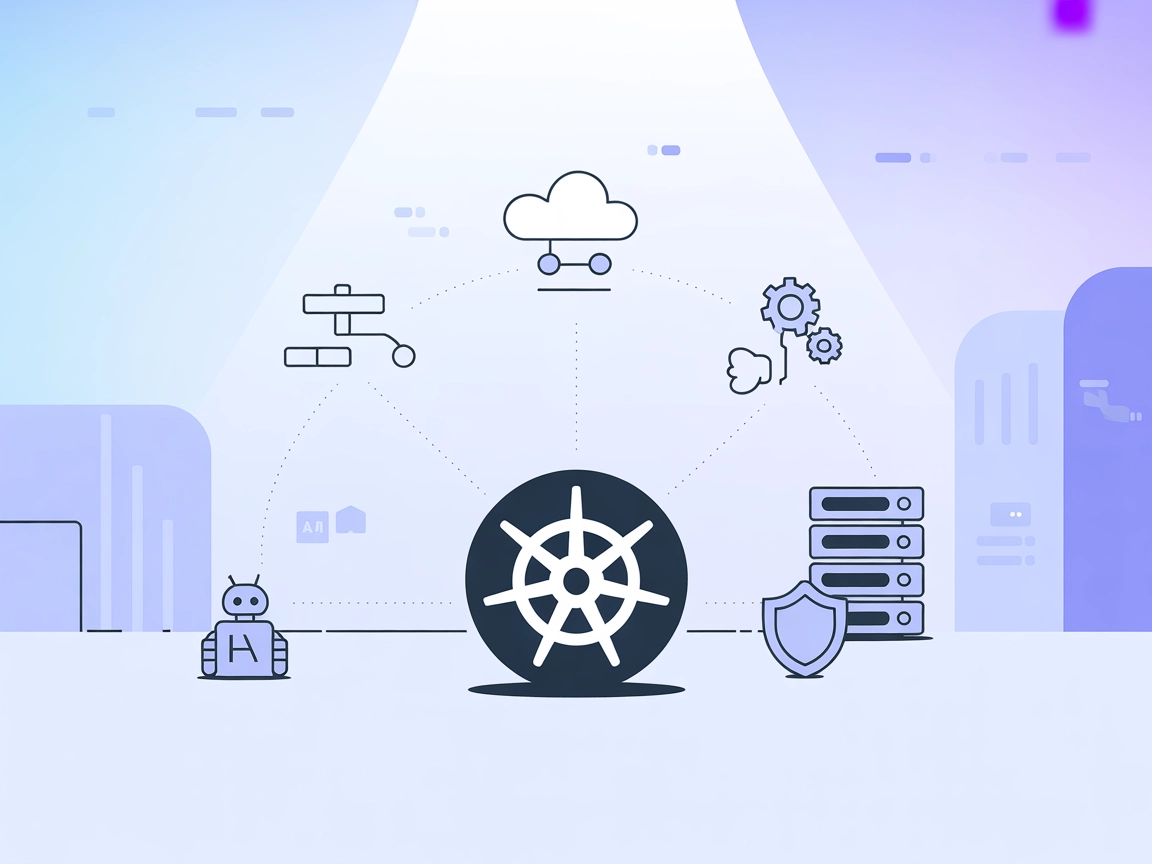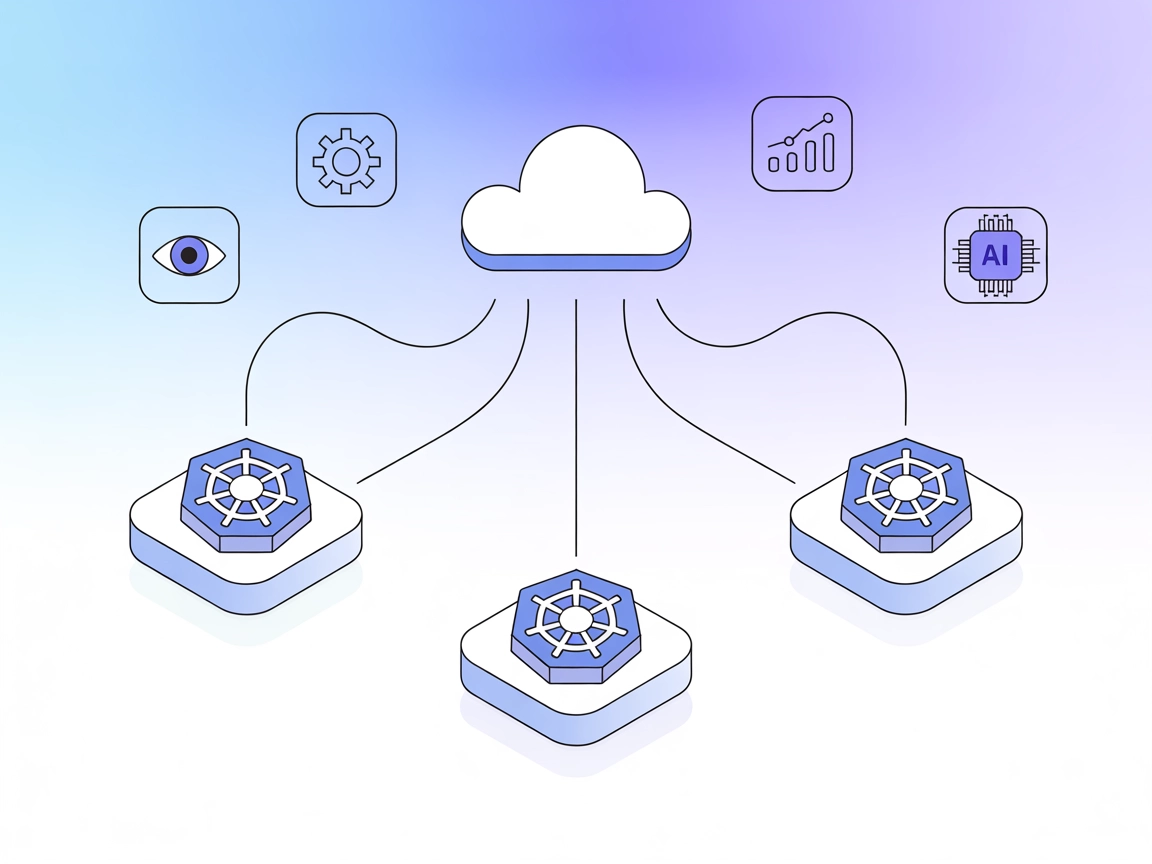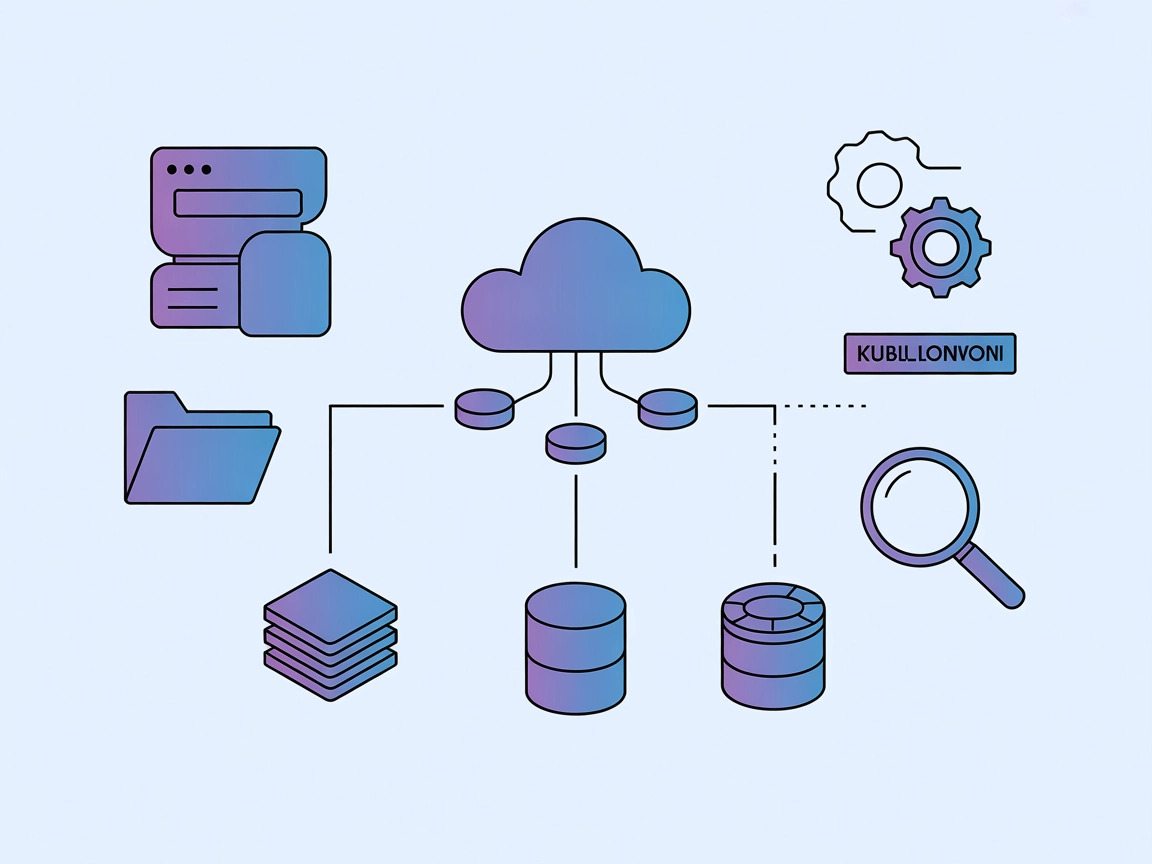
Kubernetes MCP Server Integration
The Kubernetes MCP Server bridges AI assistants and Kubernetes clusters, enabling AI-driven automation, resource management, and DevOps workflows through standa...

Orchestrate and automate multiple Kubernetes clusters using GenAI assistants with the Multicluster MCP Server, enhancing cloud-native workflows and DevOps efficiency.
FlowHunt provides an additional security layer between your internal systems and AI tools, giving you granular control over which tools are accessible from your MCP servers. MCP servers hosted in our infrastructure can be seamlessly integrated with FlowHunt's chatbot as well as popular AI platforms like ChatGPT, Claude, and various AI editors.
The Multicluster MCP Server acts as a gateway for GenAI systems to interact with multiple Kubernetes clusters via the Model Context Protocol (MCP). By exposing Kubernetes cluster data and operations through MCP, the server enables AI assistants and developer tools to programmatically access, manage, and orchestrate resources across several clusters. This integration enhances development workflows by allowing tasks such as querying cluster states, deploying workloads, monitoring resources, and automating DevOps processes, all from within AI-powered environments. The Multicluster MCP Server is designed to streamline cluster management, improve operational efficiency, and enable more intelligent automation in cloud-native application development.
No prompt templates are mentioned or found in the provided repository.
No explicit resources are listed or described in the provided repository.
No tools or tool definitions were found in the available files of the repository.
Multi-cluster Kubernetes Management:
Enables GenAI assistants to orchestrate operations across multiple Kubernetes clusters, such as deployments, scaling, and configuration changes.
DevOps Automation:
Facilitates the automation of CI/CD pipelines and infrastructure tasks by allowing AI systems to interact with and control multiple clusters in real time.
Cloud Resource Monitoring:
Assists in monitoring the health and status of resources distributed across several clusters, centralizing observability for platform engineers.
Self-healing Infrastructure:
AI agents can detect failures or anomalies across clusters and trigger remediation actions programmatically, improving resilience.
Workflow Integration:
Integrates cluster operations with development tools, making it possible to trigger complex workflows or gather context for LLM-based code suggestions.
mcpServers section using the JSON snippet below.{
"mcpServers": {
"multicluster-mcp-server": {
"command": "npx",
"args": [
"-y",
"multicluster-mcp-server@latest"
]
}
}
}
mcpServers.{
"mcpServers": {
"multicluster-mcp-server": {
"command": "npx",
"args": [
"-y",
"multicluster-mcp-server@latest"
]
}
}
}
mcpServers.{
"mcpServers": {
"multicluster-mcp-server": {
"command": "npx",
"args": [
"-y",
"multicluster-mcp-server@latest"
]
}
}
}
{
"mcpServers": {
"multicluster-mcp-server": {
"command": "npx",
"args": [
"-y",
"multicluster-mcp-server@latest"
]
}
}
}
To secure API keys and sensitive information, use environment variables in your configuration:
{
"mcpServers": {
"multicluster-mcp-server": {
"command": "npx",
"args": [
"-y",
"multicluster-mcp-server@latest"
],
"env": {
"KUBECONFIG": "/path/to/your/kubeconfig"
},
"inputs": {
"clusterName": "your-cluster"
}
}
}
}
Using MCP in FlowHunt
To integrate MCP servers into your FlowHunt workflow, start by adding the MCP component to your flow and connecting it to your AI agent:

Click on the MCP component to open the configuration panel. In the system MCP configuration section, insert your MCP server details using this JSON format:
{
"multicluster-mcp-server": {
"transport": "streamable_http",
"url": "https://yourmcpserver.example/pathtothemcp/url"
}
}
Once configured, the AI agent is now able to use this MCP as a tool with access to all its functions and capabilities. Remember to change “multicluster-mcp-server” to your actual MCP server name and replace the URL with your own MCP server URL.
| Section | Availability | Details/Notes |
|---|---|---|
| Overview | ✅ | |
| List of Prompts | ⛔ | None found in repo |
| List of Resources | ⛔ | None found in repo |
| List of Tools | ⛔ | None found in repo |
| Securing API Keys | ✅ | Example provided |
| Sampling Support (less important in evaluation) | ⛔ | Not mentioned |
| Roots Support | ⛔ | Not mentioned |
|---|
The Multicluster MCP Server provides clear value for managing Kubernetes clusters with GenAI tools, but the repository currently lacks documentation on prompts, resources, and tools, and does not mention Roots or Sampling. Its setup instructions are present and clear, but the overall utility for AI workflows is not fully exposed in the repo.
Rating: 4/10
| Has a LICENSE | ⛔ |
|---|---|
| Has at least one tool | ⛔ |
| Number of Forks | 4 |
| Number of Stars | 2 |
The Multicluster MCP Server is a gateway for GenAI systems and developer tools to interact programmatically with multiple Kubernetes clusters using the Model Context Protocol (MCP). It enables cluster management, monitoring, and automation across diverse environments from AI-powered workflows.
Key use cases include multi-cluster Kubernetes management, DevOps automation, cloud resource monitoring, self-healing infrastructure, and integration with developer tools for AI-driven workflow orchestration.
Setup involves adding the Multicluster MCP Server configuration to your tool’s `mcpServers` section (e.g., Windsurf, Claude, Cursor, or Cline), specifying the command and arguments as shown in the provided JSON snippets, then restarting your platform to enable the connection.
Use environment variables in your MCP server configuration to securely store and reference sensitive data such as KUBECONFIG and cluster names, as demonstrated in the setup instructions.
As of now, the repository does not provide prompt templates, explicit resources, or tool definitions. Its primary focus is on cluster orchestration and automation via MCP.
The server is rated 4/10 and has moderate community activity with 4 forks and 2 stars. Documentation on prompts, resources, and tools is currently limited.
Unlock seamless multi-cluster Kubernetes management and AI-powered automation with FlowHunt’s Multicluster MCP Server.

The Kubernetes MCP Server bridges AI assistants and Kubernetes clusters, enabling AI-driven automation, resource management, and DevOps workflows through standa...

The Kubernetes MCP Server bridges AI assistants and Kubernetes/OpenShift clusters, enabling programmatic resource management, pod operations, and DevOps automat...

The k8s-multicluster-mcp MCP Server provides seamless, centralized management of multiple Kubernetes clusters via a standardized API, supporting resource operat...
Cookie Consent
We use cookies to enhance your browsing experience and analyze our traffic. See our privacy policy.